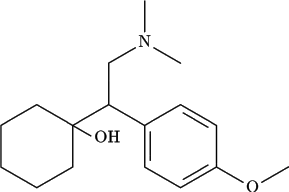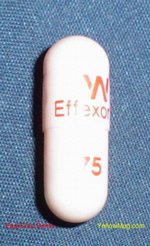SAN FRANCISCO -- Venlafaxine outperformed selective serotonin reuptake inhibitors in achieving remission in major depression, according to a pooled analysis of data from 33 randomized, double-blind, comparative clinical trials.
Venlafaxine is a dual inhibitor of serotonin and norepinephrine reuptake. Many physicians who prescribe it consider it a more effective antidepressant than the selective serotonin reuptake inhibitors (SSRIs). The pooled analysis of 7,611 randomized patients with major depressive disorder supports this impression, Dr. Charles B. Nemeroff said at the annual meeting of the American Psychiatric Association.
This was the largest and most comprehensive pooled analysis ever to examine original data from a complete set of published and unpublished comparative trials involving antidepressants. All 33 randomized trials and the pooled analysis were funded by Wyeth Pharmaceuticals, which markets venlafaxine as Effexor XR.
The 33 trials featured a total of 3,373 patients randomized to venlafaxine, 3,311 to SSRIs, and 927 to placebo. A total of 1,909 patients received immediate-release venlafaxine, while 1,464 received the newer sustained-release formulation of the drug.
The primary end point in the pooled analysis was the rate of remission, defined as a total score of 7 or less on the Hamilton Depression Rating Scale (HAM-D) at week 8. The remission rate was 41% with venlafaxine, significantly better than the 35% overall remission rate with SSRI therapy, which in turn was superior to the 24% rate with placebo, said Dr. Nemeroff, chair of psychiatry and behavioral sciences at Emory University, Atlanta.
The odds of remission were 31% greater with venlafaxine than with an SSRI. Looking specifically at the three SSRIs most widely studied in the trials, venlafaxine-treated patients were 41% more likely to achieve remission than those randomized to fluoxetine, 20% more likely to gain remission than patients on paroxetine, and 16% more likely to experience remission than sertraline-treated patients.
In separate presentations at the meeting, drawn from the same pooled data, other investigators reported that venlafaxine resulted in substantially greater improvement in a wide range of both psychic and somatic symptoms of depression than did the SSRIs. Significantly more venlafaxine-treated patients had complete resolution of physical symptoms of depression including muscle aches, headaches, backaches, fatigue, and heaviness of the limbs.
Venlafaxine also had higher remission rates in depressions longer than 52 weeks duration as well as in those of more recent onset. Remission rates in patients who had been depressed for more than 52 weeks prior to treatment were 38% with venlafaxine, 25% with SSRIs, and 19% with placebo. The rates were an absolute 10%-13% higher in depressions of shorter duration.
COPYRIGHT 2003 International Medical News Group
COPYRIGHT 2003 Gale Group




